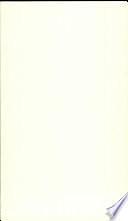Take a photo of a barcode or cover
This was irksome, conceited and relatively unsubstantiated criticism. Irksome, in that it professed to plumb the depths of a psyche by means of recovered correspondence (some of which was withheld by the Joyce estate, which Schechner's ridiculously refers to as "censorship"), needlessly trespassing boundaries of intimacy with no real purpose: the end-result is basically to conclude that Ulysses is a book about loss of the mother. You can find that on the first page or pretty close to there, the part when Mulligan says Stephen's mom is "beastly dead" and Stephen gets mad.
Conceited and unsubstantiated in its adoption of the ridiculously unjustified posture of the pseudoscientific "analyst" who deploys Freudian categories with little proof that they speak to anything more than Freud's suspicions about the world. This may seem an unfair criticism- that the book doesn't justify the premises of Freudian analysis - except that almost all works of psychoanalysis (literary or otherwise) always seem to me to assume what they set about to prove, and in the meantime quite Freud to paper over this deficiency.
Things degenerate into parlor games - "well of course obviously we all know that's a clear symptom of an oral failure..." is a pretty fair summary of much of this book. I was told by a very influential teacher of mine that "obviously" and its ilk were generally just disguises for lack of justification. That's definitely the case here.
I think what's most bothersome is the book adds relatively little to the understanding of the books it discusses. They're read in such a slapdash manner you almost believe they're based on the Cliffs Notes. Every quotation provided is already 100% clear in its meaning in Schechner's mind, so the analysis is nearly always reductive and not elucidating - "close reading" is entirely lacking, even though the book makes many highly specific claims zapping Joyce's sexual experiences.
The end result is a sort of pedantic performance art that tempts this reviewer to move in to the realm of the ad hominem - it seems fair game to wonder why Schechner feels such a compulsion to belittle Joyce. Every so often he summons forth a comment on the order of "Joyce is quite clever considering all his supposed Oedipal-type problems." Compliments interspersed with reductive simplistic analysis does not a great work of criticism make. It's like what my students' essays look like when they haven't done the reading. They just write about what they already know and pretend they're talking about the reading I've asked them to write about.
The second star is really only for the thoroughness of Schechner's readings of Joyce's correspondence with Nora. Offensive, pointless yes, but thorough nonetheless.
Conceited and unsubstantiated in its adoption of the ridiculously unjustified posture of the pseudoscientific "analyst" who deploys Freudian categories with little proof that they speak to anything more than Freud's suspicions about the world. This may seem an unfair criticism- that the book doesn't justify the premises of Freudian analysis - except that almost all works of psychoanalysis (literary or otherwise) always seem to me to assume what they set about to prove, and in the meantime quite Freud to paper over this deficiency.
Things degenerate into parlor games - "well of course obviously we all know that's a clear symptom of an oral failure..." is a pretty fair summary of much of this book. I was told by a very influential teacher of mine that "obviously" and its ilk were generally just disguises for lack of justification. That's definitely the case here.
I think what's most bothersome is the book adds relatively little to the understanding of the books it discusses. They're read in such a slapdash manner you almost believe they're based on the Cliffs Notes. Every quotation provided is already 100% clear in its meaning in Schechner's mind, so the analysis is nearly always reductive and not elucidating - "close reading" is entirely lacking, even though the book makes many highly specific claims zapping Joyce's sexual experiences.
The end result is a sort of pedantic performance art that tempts this reviewer to move in to the realm of the ad hominem - it seems fair game to wonder why Schechner feels such a compulsion to belittle Joyce. Every so often he summons forth a comment on the order of "Joyce is quite clever considering all his supposed Oedipal-type problems." Compliments interspersed with reductive simplistic analysis does not a great work of criticism make. It's like what my students' essays look like when they haven't done the reading. They just write about what they already know and pretend they're talking about the reading I've asked them to write about.
The second star is really only for the thoroughness of Schechner's readings of Joyce's correspondence with Nora. Offensive, pointless yes, but thorough nonetheless.
